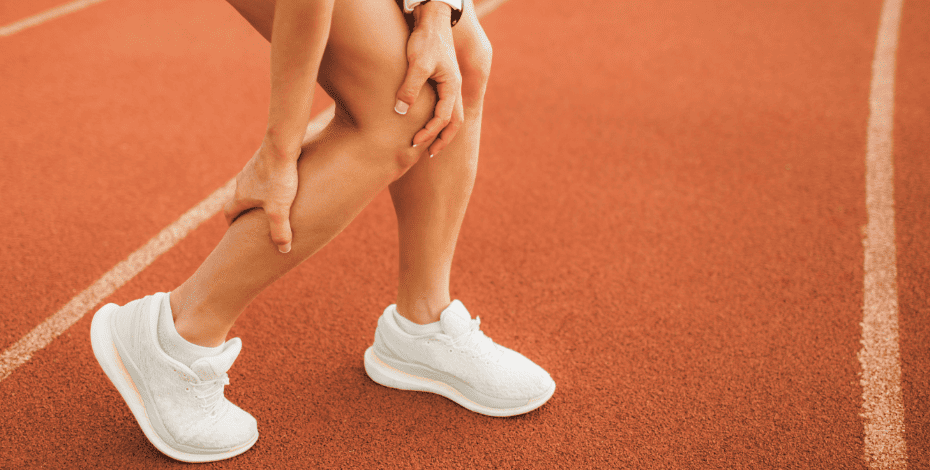
Tendons, pain and the brain

VIC BREAKFAST Clinical researcher Dr Ebonie Rio says tendinopathy can be tricky; however, understanding the link between body and brain can improve patient outcomes.
Unravelling the complexities of tendinopathy has been the career focus of clinical researcher Dr Ebonie Rio MACP, who will deliver the keynote at the VIC Branch End of Year Breakfast on Friday 22 November.
The APA Sports and Exercise Physiotherapist has been at the forefront of tendon pain research and clinical practice for more than two decades and is considered one of the world’s leading practitioners in this field.
Her passion for clinical research is driven by the opportunity to enhance the way physiotherapists diagnose the multifaceted condition and treat patients with more effective, evidence-based care.
‘My research focuses on tendons, pain and the brain, including how we can use neuroscience and education to improve patient outcomes.
‘I’m excited about how we can do better in managing this condition; it affects so many people, not just athletes.’
Ebonie is the deputy manager of physiotherapy at the Victorian Institute of Sport and holds a joint position as senior clinical researcher at La Trobe University and The Australian Ballet.
Her clinical career also includes appointments with the Australian Institute of Sport (AIS), the 2024 Paris Olympics, the Commonwealth Games (Melbourne 2006, Birmingham 2022), the 2010 Winter Olympics Vancouver, the 2010 Youth Olympics Singapore and the 2012 Paralympics London and 18 months travelling with Disney’s The Lion King stage show.
In addition, she consults broadly on complex injuries for multiple AFL and AFLW clubs as well as rugby, soccer and basketball.
She recently returned from supporting the Australian Team at the 2024 Olympic Games in Paris.
‘Attending the Olympics to support our athletes is an honour and I was particularly excited for many of the athletes, including Opals and Boomers, because I have seen many of the players progress through the years from working at the AIS.’
Passionate about mentoring and teaching, Ebonie presents at national and international conferences and guest lectures at multiple universities in the areas of foot and ankle as well as tendon and pain science.
She also supervises and mentors honours, master’s and PhD students.
Ebonie gives back to her community by volunteering with Little Big Steps, a charity for kids with cancer.
‘I am very proud to be on the scientific advisory committee.
‘The charity is dedicated to increasing physical activity opportunities for children undergoing cancer treatment because we know from research that this helps them better tolerate treatment.’
Since 2006, the APA Sports and Exercise Physiotherapist has worked continuously in high-performance sport.
However, she initially undertook an undergraduate degree in human movement before studying physiotherapy.
Today, Ebonie has a PhD in tendon pain, a Master of Sports Physiotherapy, a Bachelor of Physiotherapy with honours and a Bachelor of Applied Science.
Breaking her wrist four times gave her an insider understanding of what physiotherapy involved.
‘I loved playing sport growing up, including basketball, volleyball and athletics.
‘I still play basketball and go running.
‘It did mean I had my fair share of injuries, including an anterior cruciate ligament injury.’
Ebonie’s interest in tendinopathy developed when she was accepted as a graduate scholar at AIS.
‘I had the pleasure of working with Professor Craig Purdam.
‘When I undertook my honours degree, I worked with Professor Jill Cook.
‘They are both amazing tendon physios.
‘Craig was the head of physical therapies at AIS for 35 years.’
A lack of clear guidance in the management of tendinopathy sparked Ebonie’s curiosity and drove her to delve deeper into the research and clinical aspects of this condition.
‘I was looking after the women’s basketball team and during the season, if a player strained a muscle or had bone stress we had a clear idea on what to do and what not to do and a timeframe for rehab.
‘However, when it came to tendinopathy, despite the amazing work that had been done, we still didn’t have a clear idea of how to manage them in season.
‘I saw so much opportunity.’
She says her upcoming presentation, ‘Tendons—blending body and brain’, will help physiotherapists improve their understanding and management of this complex disorder.
A key focus will be the four different types of tendon injuries and the importance of an accurate diagnosis.
‘If we get the diagnosis wrong in the beginning, then the rehab is really challenging.’
By delving into the nuances of the different types of tendon injuries, Ebonie aims to empower physiotherapists with the knowledge they need to provide tailored, evidence-based care.
‘My plan is that everyone leaves with four things they will immediately learn and instantly do differently or better in their clinical practice.
‘It will be clinically valuable and just really practical.’
Her keynote will draw on the latest global research into the management of tendinopathy, including the role of the central nervous system in the persistence of tendon pain.
A panel discussion will follow the presentation.
Her experience as both a clinician and a researcher gives her an edge in translating research into practical clinical application.
‘Through my work with the Victorian Institute of Sport, I’m seeing athletes every day.
‘Being able to translate the research is a strength because you can really put it in the perspective of what the physio needs to know.
‘I also want to help physios understand that the different changes that tendinopathy creates in our body will influence treatment compared with other chronic or persistent pain conditions.
‘It will be really clinical, focusing on a little of the brain, a little bit of tendon and a little bit of body and on how you can bring all the evidence into your practice.’
>> The VIC Branch End of Year Breakfast will be held on Friday 22 November, 6.30–9.30 am, in Richmond, Melbourne. Click here for more information and to book.
© Copyright 2024 by Australian Physiotherapy Association. All rights reserved.





